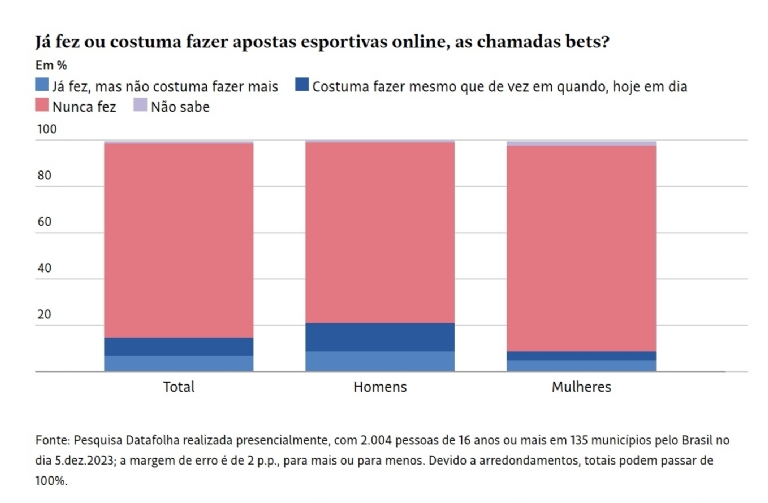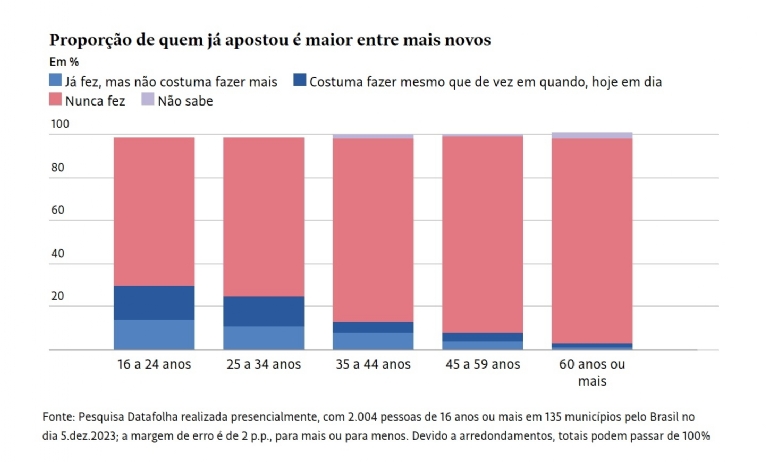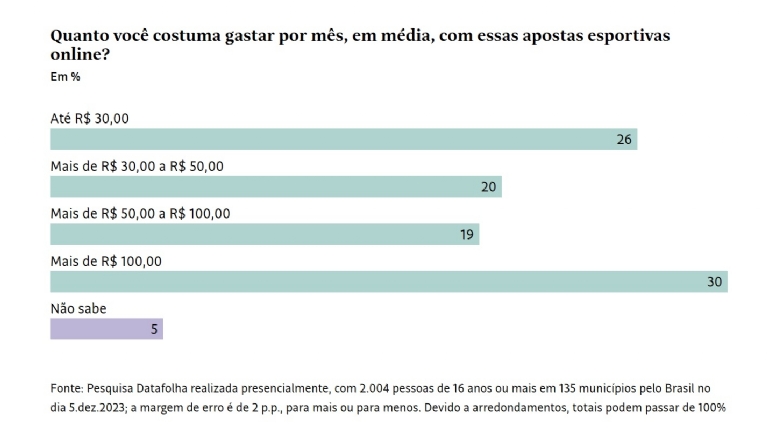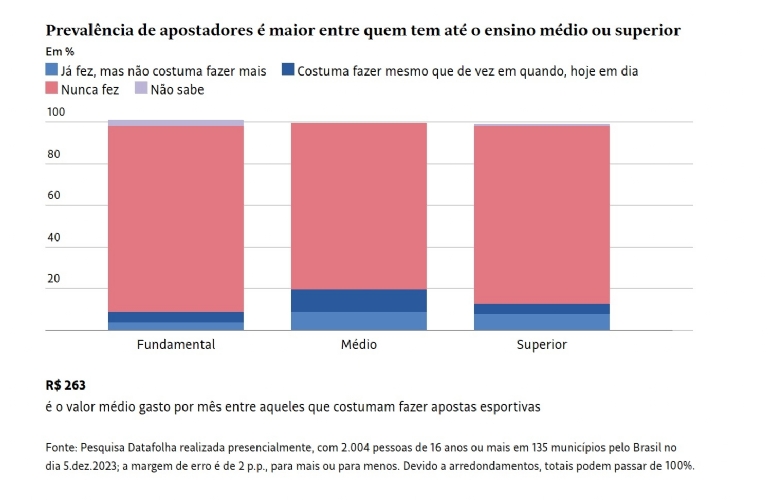

The sports betting market in Brazil is on the rise, and an increasing number of people are becoming interested in this form of entertainment. This is revealed in a Datafolha survey released this Saturday, the 13th.
The research shows that 15% of Brazilians claim to engage in or have already participated in online sports betting, also known as bets. The phenomenon, widely spread throughout the country, is more prevalent among young people and men. One-third (30%) of Brazilians aged 16 to 24 state that they have placed bets.

According to the survey, betting has been a predominantly male activity, with 21% reporting having placed bets. Among women, this percentage is 9%. Half of the bettors also claim to have lost more money than they have won.
The average monthly spending among the total number of people who engage in betting is US$ 55 — equivalent to 20% of the minimum wage in 2023. Three in ten bettors state that they spend more than US$ 20,5 per month.
The research was conducted on December 5, 2023, with 2,004 in-person interviews in 135 municipalities, involving individuals aged 16 and older from all regions of the country. The margin of error is 2%, plus or minus.

The Lula government (PT) began working on regulation last year. A new law has already been approved to define taxation and the operation of companies, which will also need to be accredited to operate in Brazil. The complete regulation is expected to be finalized in the first semester of this year.
The new legislation already includes provisions related to responsible gambling, concerns about advertising to minors, and the allocation of funds to the SUS (Unified Health System) for measures related to social harm caused by gambling.

"The issue of gambling addiction is a priority for the government. Since the second half of last year, we have been working with the Ministry of Health," says José Francisco Cimino Manssur, special advisor to the Ministry of Finance. "We will establish a working group with Health to not only create systems together but also issue a regulation that will be more specific in caring for people with gambling disorders."
Folha reached out to the education departments of all states, which oversee high school enrollments. None reported serious problems with gambling among students, and there are no specific actions related to the issue.
When questioned, the Ministry of Health stated that expanding and improving mental health services is a priority.

Folha also contacted associations representing betting establishments. Andre Gelfi, president of the Brazilian Institute of Responsible Gambling, believes that with the regulation of the activity, the competitive landscape should change.
"The operators will have rules to follow, which should curb the current commercial dynamics, where unfortunately cases without any control are recurrent. With regulation, advertising will follow Conar [Brazilian National Council for Self-Regulation in Advertising] rules, and the industry itself should help authorities monitor wrongdoings," expressed Gelfi.
Source: GMB / Folha